Doctor Who ratings have been rising and falling since 1963, and are often the subject of intense scrutiny. We take a look at some of the biggest peaks – and deepest troughs – in the series’ history.
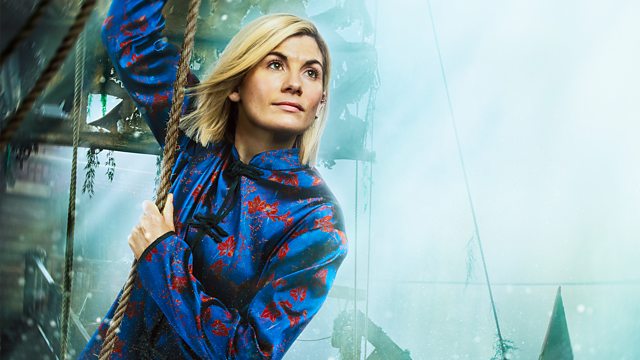
Despite getting off to a solid start, the Doctor Who ratings skyrocketed after the debut of the villainous Daleks in late 1963 / early 1964. This triggered a period that is affectionately known as ‘Dalekmania,’ synonymous with the similarly-named ‘Beatlemania’ that was sweeping the country at the same time. Indeed, the Daleks’ first serial saw the Doctor Who ratings increase from 6 million to 10 million across its seven episodes, and they remained high for the ensuing weeks of William Hartnell’s first season.
And by the time he began his second in late 1964, the ratings hit a new high. In particular, the Daleks’ second serial ‘The Dalek Invasion of Earth’ saw the Doctor Who ratings peak at 12.4 million viewers for its final episode, frequently exceeding 13 million in the serials that followed.
The first ever decline in the Doctor Who ratings took place during the epic story ‘The Daleks’ Master Plan,’ which spanned an unprecedented 12 episodes. And although this story is often regarded as one of the greats of the First Doctor era, it was markedly more adult in tone. And by the time the next serial ‘The Massacre’ aired, the ratings had dipped to an all-time low of 5.8 million – soon to be beaten by the final episode of ‘The Savages’ with 4.5.
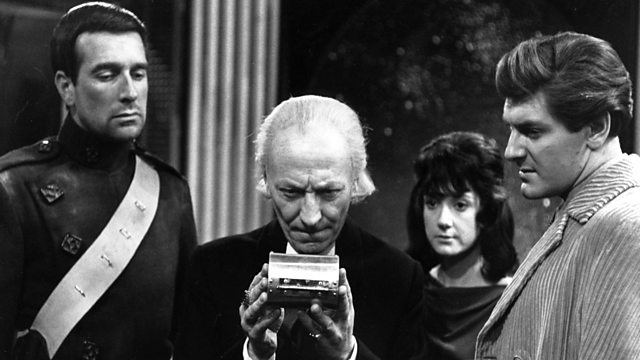
(C) BBC
The arrival of the Second Doctor in 1966 helped the Doctor Who ratings out of their slump – no mean feat considering that (at the time) the idea of recasting the lead role of a popular show was a risky one. Patrick Troughton’s first story ‘The Power of the Daleks‘ peaked at 8 million viewers for episode five, and the ratings remained consistent for the remainder of the Second Doctor’s first season, hovering around the 7 – 8 million mark.
But as with the William Hartnell era, the Doctor Who ratings had dipped by the time Troughton ended his tenure. His final story – ‘The War Games‘ – was particularly hard-pressed, with its eighth episode recording the (at the time) lowest-ever figure of 3.5 million.
Interestingly, this lull signalled the dawn of a new wave of popularity for Doctor Who. In 1970, the series began broadcasting in colour, and it had a new Doctor in the shape of Jon Pertwee plus the beginnings of a new ‘UNIT family’ spearheaded by the ever-popular Brigadier Lethbridge-Stewart. The Time Lord may have been exiled to Earth, but this was no barrier for the British public. Pertwee’s first season started with 8.4 million viewers, and peaked at 9.3 for ‘The Ambassadors of Death.’
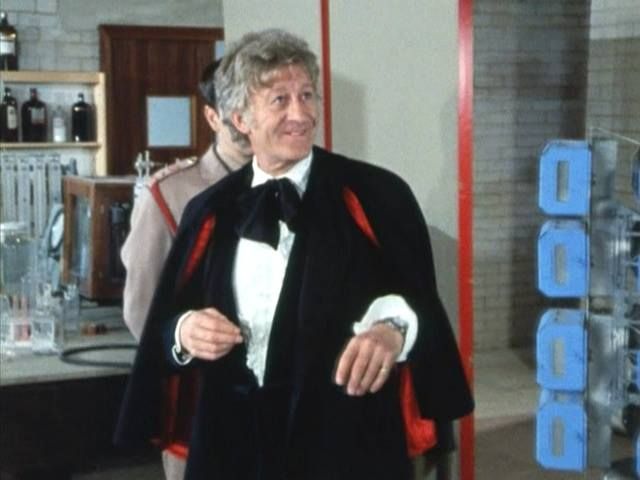
(C) BBC
The show’s popularity would only increase under the new production team of Barry Letts and Terrance Dicks. With the introduction of the Master and new companion Jo Grant, the Doctor Who ratings continued to rise, hitting 10.4 for the second episode of ‘The Day of the Daleks’ (a height that hadn’t been seen since the Hartnell days) soon to be followed by 11 million for the second episode of ‘The Curse of Peladon.’
Arguably, Jon Pertwee left Doctor Who at the peak of his popularity. His final story ‘Planet of the Spiders‘ saw 10.1 million people tuning in for the first episode, a height that would be beaten by the arrival of Tom Baker in the subsequent story ‘Robot’ which peaked at 10.8 million.
By 1975, the Doctor Who ratings were in the midst of consistent highs that would soon be topped by the incoming production team of Philip Hinchcliffe and Robert Holmes. To this day, the Fourth Doctor era is one of the most-viewed in the series’ history, with 13.6 million people viewing the second episode of ‘The Ark in Space’ which (at the time) was a new record for the show.
What is the most viewed Doctor Who episode?
After this, there are too many high-scoring stories to list (at least in this article!) with the Doctor Who ratings frequently exceeding 10 million viewers, which is an impressive streak to maintain over a three year period.
There was, however, a dip during the early Graham Williams period (the producer who followed Hinchcliffe) but these figures were soon bolstered by a renewed interest in the show, as well as a series of strikes at ITV. For these reasons, the 1979 story ‘City of Death‘ saw a dizzying 16.1 million people tune in for its final episode – a figure that has yet to be topped.
Interestingly, the Doctor Who ratings suddenly went into a rapid decline. As Tom Baker began his final season in 1980, the viewing figures dropped to their lowest in years, with just 5.2 million people tuning in for the third episode of ‘The Keeper of Traken.’
It is impressive, therefore, to think that the arrival of Peter Davison in 1981 doubled the Doctor Who ratings, which peaked at 10.4 million for the final episode of his first story ‘Castrovalva’ and continued to hover between 8 – 10 million throughout Season 19.
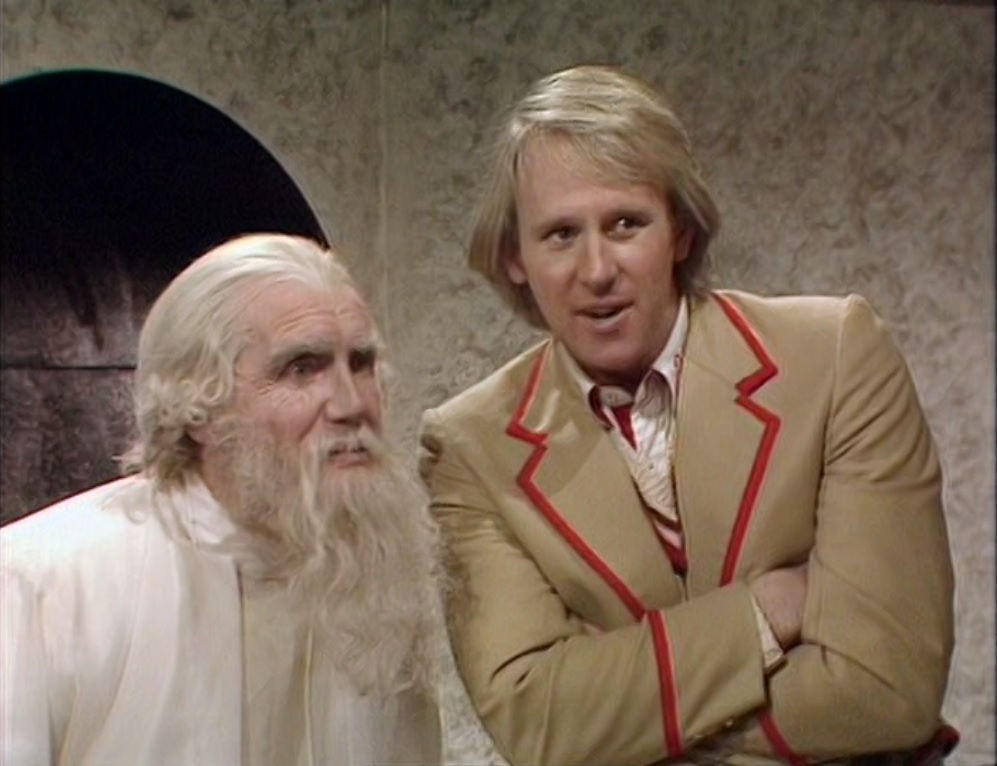
(C) BBC
The show’s popularity would continue as Doctor Who headed towards its 20th anniversary, and the 90 minute special saw a respectable 7.7 million tuning in.
At this point, Doctor Who was in a period of consistency. The production team had been in situ for three years under the stewardship of John Nathan Turner, and he would remain with the show until its cancellation in 1989. And the Doctor Who ratings remained strong as Colin Baker took over the TARDIS, with Season 22 beginning with 8.9 million viewers and ending with 7.7.
And so the show’s (temporary) cancellation in 1985 was a surprise for many, particularly when the ‘lack of popularity’ and ‘declining quality’ were cited as reasons for its axing, which didn’t seem to reflect the reality of the time. Ultimately, Doctor Who only went on an 18 month hiatus, and John Nathan Turner was told to introduce more comedy and (eventually) re-cast the Doctor.
What is the least viewed Doctor Who episode?
This was when the Doctor Who ratings went into a decline that they never recovered from, at least during the Classic run. Colin Baker’s last story ‘The Trial of a Time Lord’ opened with just 4.9 million viewers, hitting a low of 3.7 during its opening segment ‘The Mysterious Planet.’
And even the introduction of a new Time Lord in the shape of Sylvester McCoy couldn’t win back the gaze of the viewing public, although one important factor in this decline is the fact that Doctor Who – for the first time in its history – was scheduled opposite Coronation Street. ‘Time and the Rani‘ began the Seventh Doctor era with just 5.1 million viewers, and by the time 1989’s ‘Battlefield’ came around, the Doctor Who ratings hit an all-time low with just 3.1 million tuning in for its opening episode.
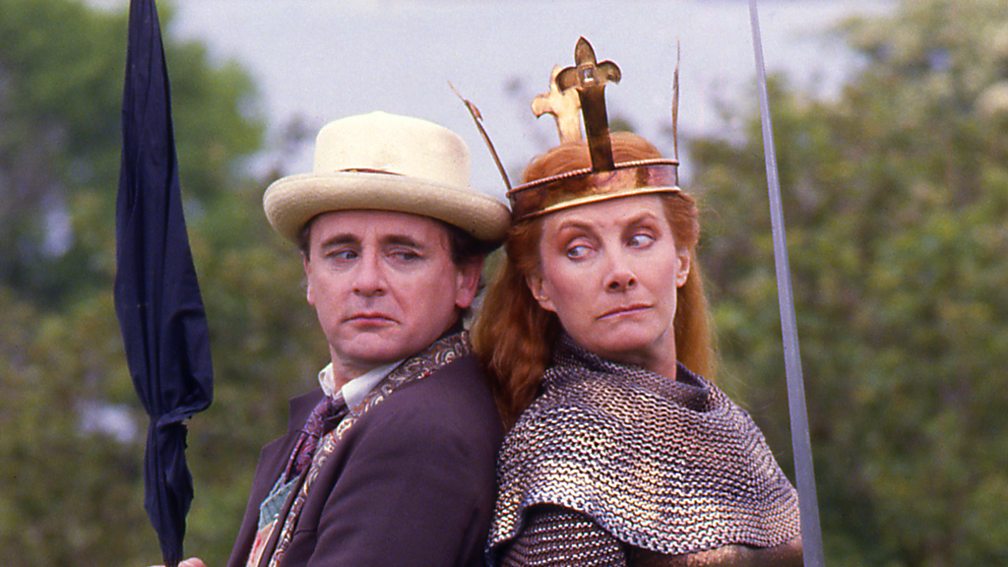
(C) BBC
Of course, the Doctor Who ratings saw a surge when the programme returned under the guidance of Russell T Davies, with 10.8 million tuning in for the Ninth Doctor‘s first episode. After this, we see a few ‘exceptions to the rule’ when it comes to the ratings. Certainly, Doctor Who saw some of its best ever scores during the RTD era, but many of these were for Christmas specials such as ‘Voyage of the Damned’ which had a rating of 13.1 million, the highest New Who rating to date (matched by the subsequent special ‘The Next Doctor’) and the second highest viewing figure in the whole of 2007.
Then there are other specials such as ‘The End of Time‘ parts one and two which performed excellently, with 11.6 million and 11.8 million apiece. And although these were Christmas and New Year specials, it’s likely that they’d have performed well anyway as they were the last to feature the Tenth Doctor David Tennant.
Otherwise, some of the best ‘mainstream’ episodes of the Tenth Doctor’s run were ‘The Stolen Earth’ and ‘Journey’s End’ which scored 8.8 and 10.6 million respectively, the latter being the first Doctor Who episode in history to be the most-watched programme of the week.
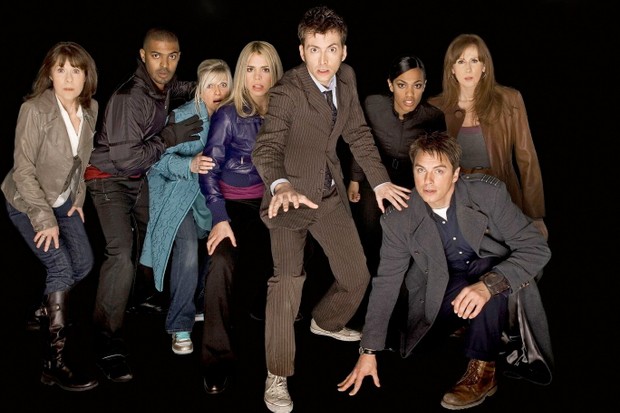
(C) BBC
Incidentally, the lowest figure in the first RTD era was for the Series Two episode ‘The Satan Pit’ which saw 6.1 million people tuning in.
Meanwhile, the Doctor Who ratings began strongly for the Steven Moffat era in 2010, with 10.1 million tuning in for Matt Smith’s debut ‘The Eleventh Hour.’ As with Tennant, the viewing figures rose for the Christmas specials such as ‘A Christmas Carol’ (12.1 million) and ‘The Doctor, the Widow and the Wardrobe’ (10.8 million.) Matt Smith ended his run with ‘The Time of the Doctor‘ – a Christmas special that saw 11.1 million people tuning in.
At the same time, the Matt Smith era possibly had the most impressive Doctor Who ratings of all time with 12.8 million people watching the 50th anniversary special ‘The Day of the Doctor,’ although the final figure is probably much higher than this as it was simulcast around the world and screened in cinemas. Indeed, the episode won a Guinness World Record for being the world’s largest ever simulcast of a TV drama, being shown in 94 countries simultaneously.
Steven Moffat continued to oversee the programme into the Peter Capaldi era in 2014, and the Doctor Who ratings remained strong for the actor’s debut in ‘Deep Breath’ with some 9.2 million people tuning in. And despite the positive start, the overall ratings did begin to drop as his tenure progressed, with viewing figures of 6.5 million for the first episode of Series Nine ‘The Magician’s Apprentice.’
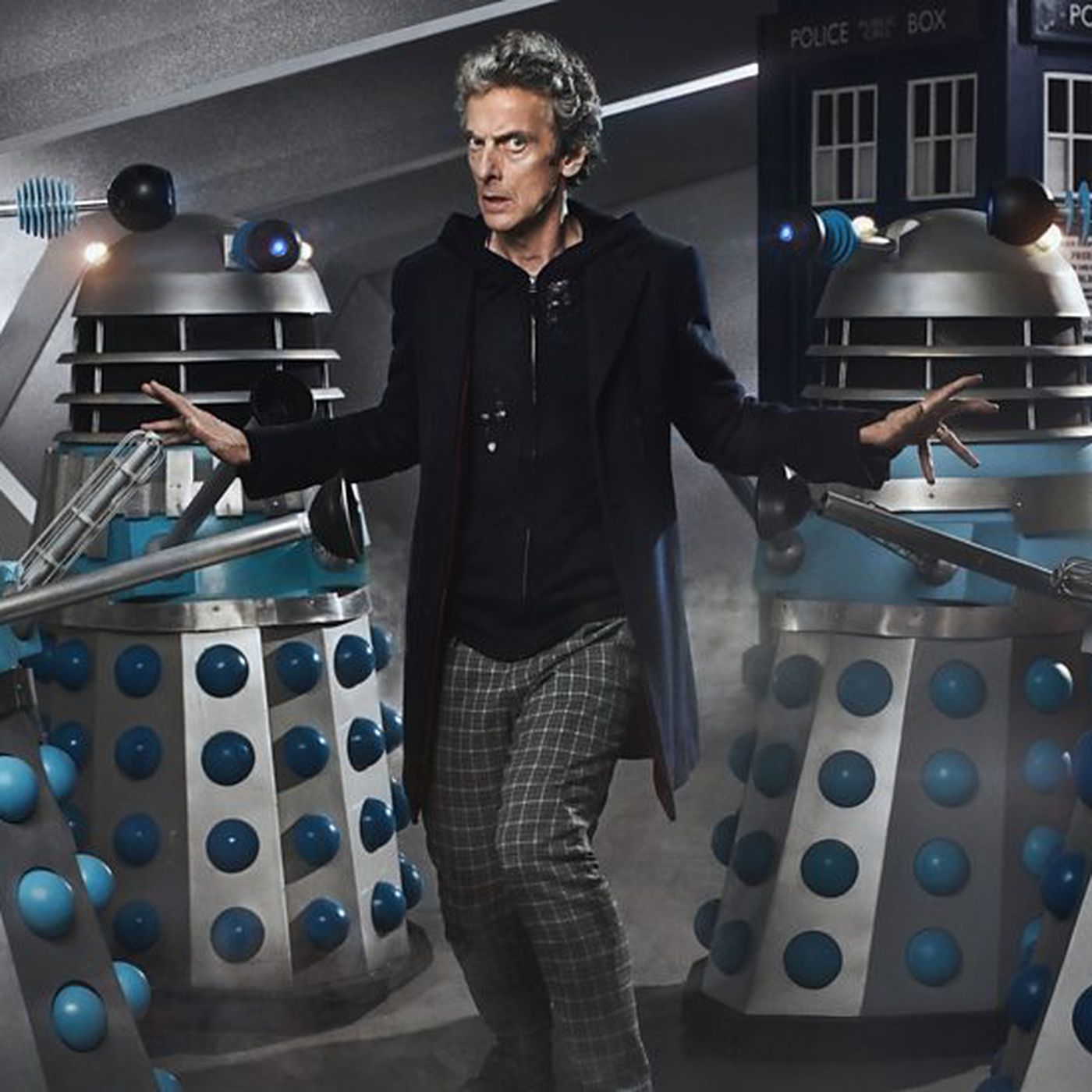
(C) BBC
As the Twelfth Doctor’s era progressed there were a couple more dips, with 4.7 million tuning in for the Series Ten episode ‘The Eaters of Light,’ which (at the time) was the lowest figure of New Who. However, the Doctor Who ratings improved for Peter Capaldi’s final story ‘Twice Upon a Time‘ – which was also the last for showrunner Steven Moffat – with viewing figures of 7.9 million.
Are Doctor Who ratings down?
Next we come to the Jodie Whittaker era, which was overseen by showrunner Chris Chibnall and began in 2017. The Thirteenth Doctor made an impressive start, with the Doctor Who ratings seeing a significant rise for her debut episode ‘The Woman Who Fell to Earth’ with 11 million viewers. And although the Doctor Who ratings dipped as Series Eleven progressed, they remained respectable, with 6.7 million tuning in for the series finale ‘The Battle of Ranskoor Av Kolos.’
At the same time, the ratings for the Thirteenth Doctor era saw a sharp decline. The Series Twelve finale ‘The Timeless Children‘ achieved a viewing figure of 4.7 million, and Jodie Whittaker’s penultimate story ‘Legend of the Sea Devils‘ almost became the lowest rated episode in Doctor Who history with 3.5 million viewers.
In the modern age, it has become harder to accurately measure the Doctor Who ratings. Certainly, the figures for the new Russell T Davies era are lower than one might hope for; the first episode of Ncuti Gatwa’s first season had an overnight figure of 2.6 million, and a final figure of 4.0. But it’s worth remembering that, uniquely in Doctor Who history, these episodes premiered at midnight on BBC iPlayer and Disney+, with the transmission coming after.
At the time of writing, the lowest overnight figure in the Doctor Who ratings is for ‘The Legend of Ruby Sunday,’ which had 2.02 million tuning in and a consolidated figure of 3.05 million.
What is your prediction for the future of the Doctor Who ratings? Do you think they are still an accurate way of measuring a programme’s popularity? Let me know in the comments below.
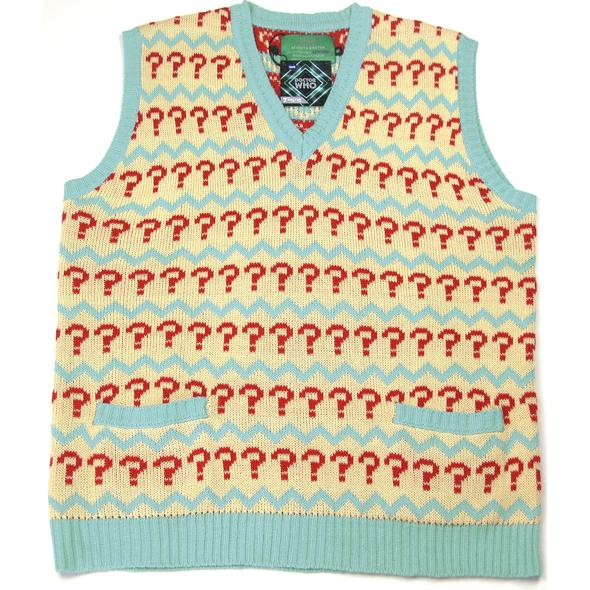
Seventh Doctor jumper – order now from the Lovarzi shop!
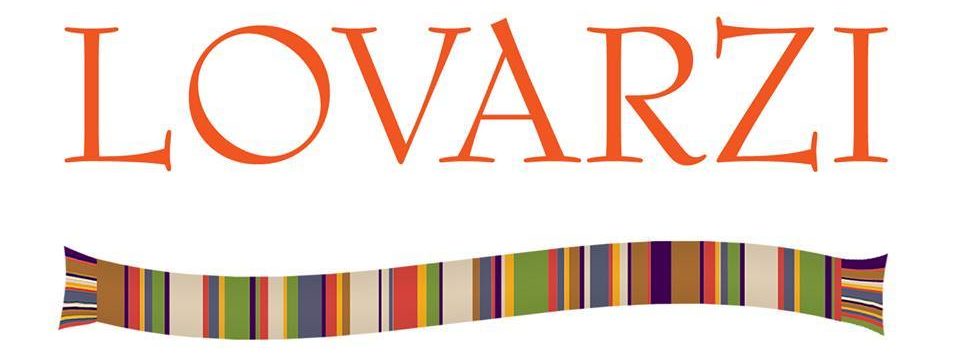







What you have to realise first what shows on ITV ,Doctor Who was up against .Then there were the changes to the day of the week and where in the tv schedule Doctor Who went out on .It changed from early Saturday tea time to Tuesday and Thursday night at 7pm .Then you have how Who was watched .Prior to the v.c.r. appearing .If you missed the Saturday showing ,unless in the midsummer a complete story was shown .You had no means of watching even if you wanted to .Unlike New Who ,where all episodes are available to view on the I-Player .
I was initially hopeful when I heard RTD was returning but the announcement of Ncuti Gatwi has left me feeling underwhelmed.
I felt the show needed a bigger actor coupled with RTDs writing to pull fans back.
I hope Gatwi does the job justice but not sure the show can pull fans back as it is
Doctor who will continue to decline. It is no longer ‘Doctor WHO’ to me. Very sad
Another consideration is how television viewing has changed over the years. Vintage Who was essentially battling against just one other channel. Fast forward to the 2020’s and viewing habits have totally changed. Streaming services offer thousands of choices for viewers. Binge watching, and movie streaming are popular choices.
Also consider the time and day of the week it airs. Many many factors to consider.
That and Chibnall’s episodes have been really poorly written.
Chibnall’s Doctor Who era – and like most I hate to throw Jodi Whitaker under the bus with him, it’s not her fault – has been a historic low point in the show’s history. Unless RTD produces a major turnaround, not just in terms of viewership numbers but the quality of writing and style of the show, I classify Doctor Who in three major categories: Classic, Modern and Ignore.
as long as it is woke , it is a nope
Unfortunately, I did not watch any of the Whittier episodes. I am just tired of people changing the dynamics of things and calling them the same. It was stupid changing the Doctor to a woman just because they said it was not written any where that the Dr. Could not be a woman. Next thing you know the Doctor will not have two hearts. This is the same as letting vampires got out in the sun. At that point they are not longer what they claim to be. I have no problem with female time Lord such as “the Rani,” and “Romana but give them their own show. When they do stuff like this they are just checking boxes such as the selection of the new Doctor. If you truly want to check those boxes give them their own shoes with their own story line. I would watch those. Hopefully RTD can bring back the traditional Doctor Who themes and story lines but I think they are tampering to much with the ingredients that made Doctor who a hit starting in 1963.
The BBC is just too woke now. Everything must change for diversity sake.
And then viewing figures drop.
Funny that.
Makes sense. 11 (matt smith) is my one and only doctor. I left when he left.
I remember when the original series became unwatchable. It was a truly awful series by the time it came to an end.
History is just repeating itself.
People want to be entertained not patronised.
Perhaps it’s time for another break.
A woman as the doctor and all the woke nonsense has ruined it. Haven’t watched a single episode of the “Doctor” since Ms. Wittaker’s debut. What was that, 2017? Time flies. Ha, ha.
Haven’t watched a single episode of the new “doctor”, might start watching again if the next doctor is a bloke and they give up all the woke nonsense.
I watched every episode since it started up until the modern era, then it got less and less. Paul Mcgann was my first “what is going on”dr Who kissing his “assistant”. And it seemed to go downhill from there. Matt Smith is the only Doc I would add to the originals. Tennant has a few okays, but there was a lot of is he God stuff going on. And then, let’s not talk about the woke stupidity. I completely gave up. I now sit and watch reruns on brit box of classic.
The three episodes celebrating 60 years of Dr Who being shown at present with the return of the 10th Dr, David Tennant and Catherine Tate are very exciting under the stewardship of Russell T Davies are excellent.
The 10th Dr, to me, has the greatest appeal than any of those in the modern era and just might revive interest in the programme.
It is sad that we are seeing the series being enslaved by political correctness, the thirteenth Doctor, saw figures plummet , whether this was the writing or the directing, who knows.
We can only hope that the fifteenth Dr Who in the guise of Ncuti Gatwa will prove that changes in the leading role can jump as it has in the past, to a new audience regardless of any other factors and simply accept the reincarnation of the Doctor.
We should hope that Ncuti is a massive success and not tarnish him with prejudice before he has even transformed before us. Good luck to the fifteenth Dr in keeping the Galaxy and Earth safe from whatever might happen in the next series.
The show is very mean spirited and hates men. Some of the show’s themes and situations are sick and not appropriate for children, or adults. Its just a sick hateful show these days. Written by things who seem to have a obsession with hating all men and boys. The hatred is actually very rampant. First watched in ’77, quit the show in 2013. Saw the subtle ill _edo hidden messages growing in frequency. Started with the character of Capt. Jack and carried on from there. Anyone who lets their child watch this sick propaganda machine is a bad parent. Dr Who died long ago and should remain dead. I will never watch or be a fan of this show again. Clearly the writers could care less. Thus proving my point. Its made for ‘other’ people now. Walk away and let the thems have it.